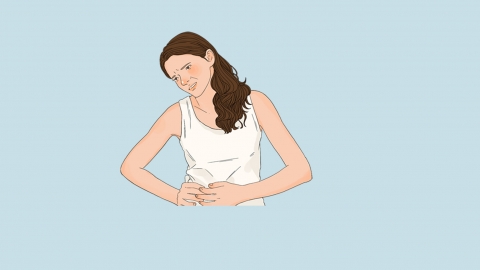What causes lower abdominal pain after vaginal delivery?
Lower abdominal pain after vaginal delivery may be caused by uterine contractions, abdominal chilling, endometritis, pelvic inflammatory disease, or cystitis. Symptoms can be relieved through warm compresses, keeping the abdomen warm, and medication. If the pain worsens or is accompanied by fever or abnormal bleeding, prompt medical attention is necessary.
1. Uterine contractions: After childbirth, the uterus contracts to return to its pre-pregnancy size, causing intermittent lower abdominal pain. Pain may intensify during breastfeeding. It is recommended to apply a hot water bottle to the lower abdomen, avoid pressing on the abdomen, and gently massage if needed to relieve discomfort.
2. Abdominal chilling: Postpartum women are physically weak, and inadequate warmth may expose the abdomen to cold, leading to spasms of gastrointestinal smooth muscles and resulting in lower abdominal pain, possibly accompanied by diarrhea. It is advised to wear additional clothing to keep the abdomen warm, drink plenty of warm water, and avoid raw or cold foods.

3. Endometritis: After delivery, the uterine lining has open wounds that may become infected by bacteria, causing inflammation. This leads to persistent lower abdominal pain, increased lochia with an unpleasant odor. Under medical guidance, medications such as cefixime dispersible tablets, metronidazole tablets, and Gynecological Qianjin tablets may be used to alleviate symptoms.
4. Pelvic inflammatory disease: Bacterial infection of pelvic tissues after childbirth causes inflammation, leading to pelvic congestion and edema, resulting in a sensation of heaviness and pain in the lower abdomen, often accompanied by backache and fever. Under medical guidance, medications such as levofloxacin hydrochloride capsules, cefuroxime axetil tablets, and Fuyankang tablets may be used to improve symptoms.
5. Cystitis: Poor urination or inadequate hygiene after childbirth may allow bacteria to enter the bladder, causing inflammation. Inflammation irritates the bladder, leading to lower abdominal pain along with frequent and urgent urination. Follow medical advice to use medications such as amoxicillin capsules, cefaclor capsules, and Sanjin tablets to relieve symptoms.
Maintain good external genital hygiene and change sanitary products frequently. Get out of bed for light activity as early as possible after delivery to promote lochia discharge. Eat a light, nutritious, and balanced diet, drink plenty of fluids, and support overall recovery to reduce discomfort.




